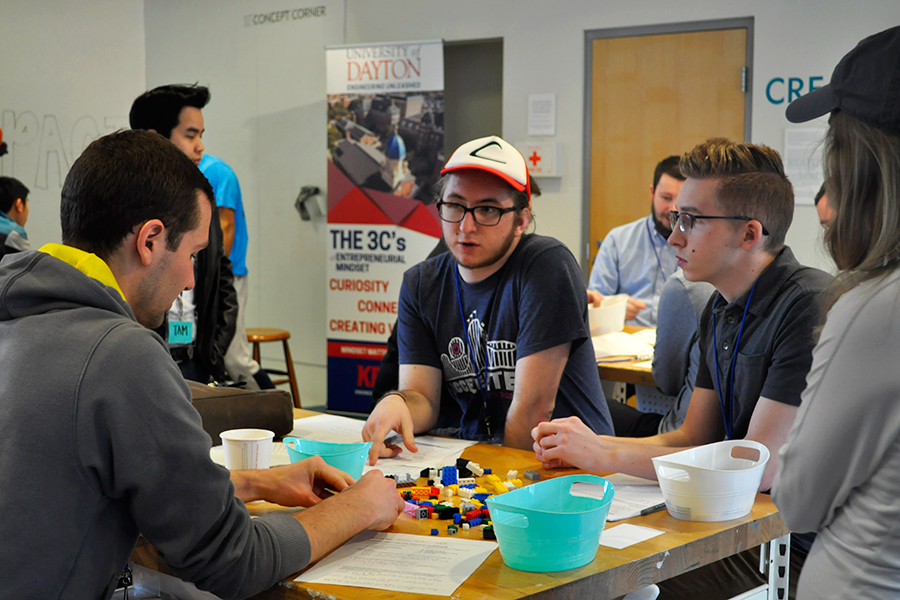IACT: Creativity for Tomorrow

Hack for Impact: A Recap
The Drive for Local Sustainability
This past weekend students, faculty, and staff gathered together to participate in the University of Dayton’s first ever Hackathon: Hack for Impact. Hack for Impact was a collaborative event put on by the Institute of Applied Creativity (IACT) at ArtStreet, Hanley Sustainability Institute, the KEEN/Visioneering Center, the Learning Teaching Center, and a team of collaborative partners. Their mission? To create a space where a group of students could develop collaborative solutions that impact real-world sustainability issues outside of the classroom.
Hack for Impact had four teams competing against one another, with each team selecting their own unique challenge to overcome. Challenges included promoting green businesses, addressing food desert issues, jump starting a city-wide solar network, and impacting children’s lives through sustainability. Teams had two-days to work on their challenges with intermittent “mini-challenges” throughout the event, including a Makey Makey Tech Hack Battle and Hacky Sack Challenge. Participants navigated these tests utilizing applied creativity concepts and the IACT's "IDA" process of Ideation, Disruption and A-Ha. At the end teams had to present their finalized solutions to the team of Hack for Impact judges.
Hackathon judges evaluated and scored projects on factors including technical difficulty, feasibility, creativity, and more. Based on what criteria had been met, teams had a shot at winning either our Technical Impact or Social Impact Awards. Winners of these awards were recognized for their excellence in reaching high-tech and community impact measures respectively.
The winners of Hack for Impact 2017 were:
Situalis - Technical Impact Award
Evan Kurtz, Tyler Berkshire, & Zachary Sieficer
Developing the concept for a software management system that allows businesses and nonprofits to post perishable food offerings or excess products for purchase (or no cost). The platform would also provide the resources for purchasing businesses to access available food offerings at fraction of original cost.
Fridays for the Future - Social Impact Award
Ashley Brown, Samantha Rennu, Smit Mistry
The team’s goal was to design a mentorship opportunity for high school students to gain the necessary knowledge and insight for post-high school growth. This opportunity is designed to have mentors come in weekly to high schools, present opportunities, and match up with interested students. This in the hopes that mentorship will lead to greater internship and apprenticeship opportunities for students.
These winning ideas will not just stop at Hackathon, and we look forward to future collaborative next steps between students and faculty. In reflecting on this event, Director of Academic Technology and Curriculum Innovation & Hackathon judge David Wright stated, “I have to say that this was an amazingly uplifting and exciting event that profiled our students creative energies towards solving thorny community challenges.”
You can view our Hack for Impact photo gallery at go.udayton.edu/hackathon.
